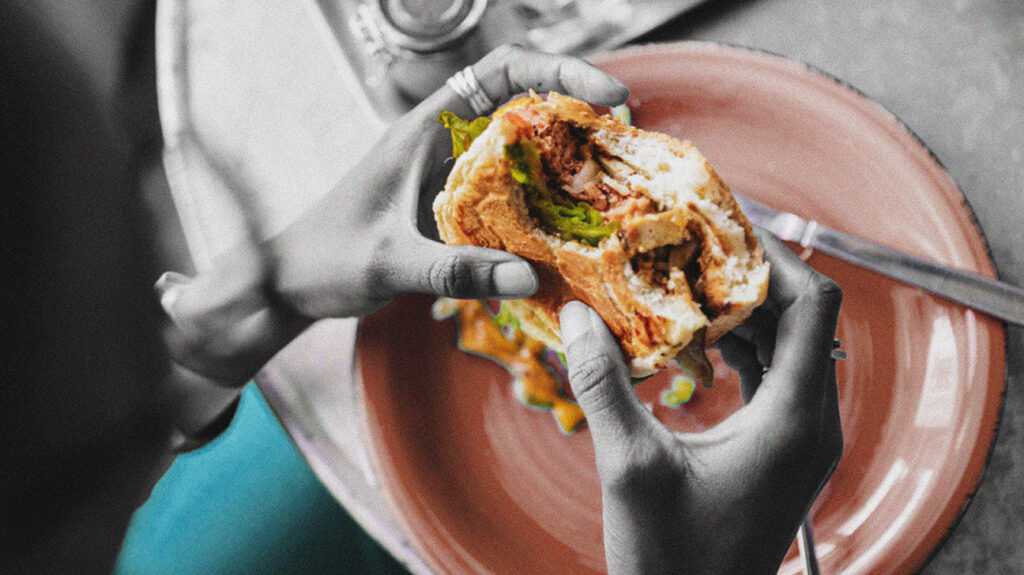Study finds no proof that vegan diet rewards specific blood type
15 December, 2020

Proponents of the bloodstream type diet declare that people with type A bloodstream benefit most from a good vegan diet. Even so, a new study found no website link between diet and blood type. The researchers rather suggest that plant-structured diets are advantageous for people of all blood types.
Remaining healthy generally involves training regularly and carrying out a nutritious diet. As the Centers for Disease Control and Prevention (CDC) recommend a balanced diet plan of fruits, vegetables, lean meat, and poultry, the blood type diet shows that nutritional needs depend generally on a person’s bloodstream type.
Debunking the blood vessels type diet
The blood type diet plan tailors an individual’s eating patterns to specific food items to maximize the health benefits. However, a 2013 review in The American Journal of Clinical Nourishment found that these claims lacked scientific evidence.
When looking at cardiometabolic factors, or a person’s potential for stroke, diabetes, and cardiovascular disease, the findings of a 2014 study didn't support tailoring diets to blood types.
Although the benefits did show that persons on the Type A diet - which involves eating high levels of grains, fruits, and vegetables - had a lower physique mass index (BMI) and waist circumference, as well as reduced blood circulation pressure, cholesterol, and fat, these improvements in risk factors were not reliant on blood type.
Despite insufficient evidence to aid bloodstream type diets, some people assume that catering to bloodstream type can lower disease risk.
Reason for the study
The appeal for blood type diets could possibly come from the health benefits connected with a plant-based diet plan. Researchers have connected these diets to less BMI and a lower life expectancy risk of obesity, diabetes, and cardiovascular disease.
A recent study in JAMA Network Start found that zero fat vegan diets helped lower insulin resistance and raise metabolism, which aided weight management. Based on these outcomes, researchers associated with the Medical professionals Committee for Responsible Medicine reanalyzed the study’s info to determine whether blood type played a role.
The existing study was a subset of the JAMA Network Open study, and it focused exclusively on the participants belonging to the intervention group in the 16-week trial.
Study methods
The trial recruited a total of 244 adult women and men from Washington, D.C., with a BMI between 28 and 40. None of the individuals had a brief history of diabetes, substance abuse, pregnancy, or lactation, and none were presently on a vegan diet.
The researchers assigned half of the participants to check out a strict, zero fat vegan diet, as the other half didn't make any changes with their diet. The participants self-reported what they ate during the 16-week trial.
The vegan group also attended weekly classes on dietary information, which health professionals led. The researchers advised all the participants to keep their regular physical exercise habits.
The measurement of cardiometabolic risk factors occurred in the beginning and end of the trial, carrying out a 10-to-12-hour overnight water-only fast.
After this, the experts replicated the technique but included blood typing. The secondary analysis involved a complete of 68 participants.
Study outcomes
In the beginning of the trial, bodyweight and low-density lipoprotein (LDL) cholesterol amounts were higher in people with blood type A than in those with other blood types. On the other hand, bodyweight and LDL cholesterol amounts were lower in persons with blood type O than in people that have other blood types.
There have been no significant dissimilarities between blood type and the changes that resulted from the vegan diet.
Immediately after 16 weeks on the reduced fat vegan diet, there have been no statistically significant variations in the average change in body weight between your blood type groups. People with blood type A lost an average of 5.7 kilograms (kg) compared with 7.0 kg for folks with other bloodstream types. The average weight loss for folks with blood type O and those with other bloodstream types was 7.1 kg and 6.2 kg, respectively.
The experts also found no significant evidence of a notable difference in the decrease in average cholesterol between your teams either. They reported a loss of 17.2 milligrams per deciliter (mg/dl) in the type A group versus 18.3 mg/dl in the other participants, and a loss of 17.4 mg/dl for the sort O group versus 18.4 mg/dl.
“Although the intervention diet was similar to that recommended by D’Adamo [a proponent of the blood type diet] for folks with blood type A and specifically recommended against for all those with type O, there have been simply no associations between these blood types and the outcomes of the dietary intervention,” concluded the authors.
Study strengths and limitations
There have been multiple strengths to the analysis, starting with ruling away possible confounders that could influence the results.
For instance, to exclude exercise as a factor, individuals maintained their regular physical exercise routine during the 16-week trial. Likewise, all individuals started the trial concurrently, which eliminated seasonal changes in diet plan.
According to the experts, 16 weeks was the right time for individuals to acclimate and stick to the study. There was also a low drop-out rate.
The participants did not have access to ready-prepared dishes but could prepare food in the home or choose take-out. This technique made the findings considerably more applicable to real-life circumstances.
However, there were major limitations regarding representation.
Not as many participants with bloodstream types AB and B were mixed up in trial. Consequently, the team had to combine blood groups. Also, individuals in the analysis were health-conscious and may have already been more motivated to stick to a minimal fat vegan diet. Therefore, the participants may not come to be representative of the overall population.
Source: www.medicalnewstoday.com
TAG(s):
